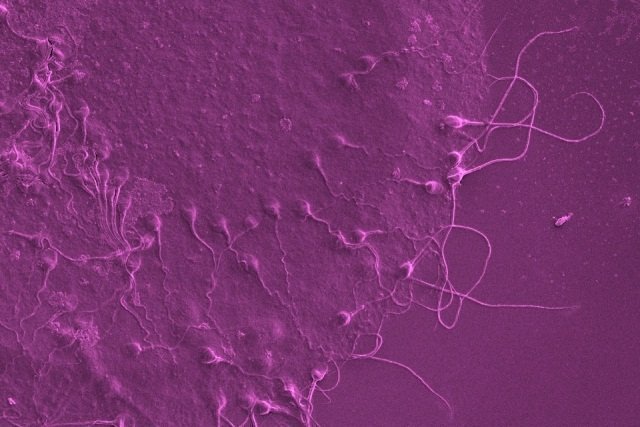Instituto Bernabeu researchers study the impact of the male factor on embryo mosaicism
February, 6th 2020

Instituto Bernabeu researchers have studied the impact of the male factor on embryo mosaicism or cases of embryos with some normal cells and some chromosomally abnormal cells. It is one of the reasons for implantation failure but the factors that cause it remain unclear. The aim of the study was to assess which male factors could have an impact on embryo mosaicism rates.
Out of the 1,717 embryos that were analysed, 17.9% had mosaicism. In order to assess the potential impact of semen quality on embryo mosaicism percentages, groups of patients with oligozoospermia (low quantity of spermatozoa in semen), criptozoospermia (quantity of spermatozoa below one million in each millilitre of semen), azoospermia (absence of spermatozoa in ejaculate), teratozoospermia (an increase in the percentage of abnormal spermatozoa in semen samples) and asthenozoospermia (a decrease in the percentage of mobile spermatozoa in semen samples) were generated. No differences in the mosaicism percentages were observed. In addition, there were no discrepancies when the comparison was made between patients with abnormal parameters and males with entirely normal semen samples.
The research work carried out by Instituto Bernabeu concludes that neither semen quality nor sperm fragmentation affect embryo mosaicism rates. It seems that only the father’s age appears to have an impact.
The project is part of nine lines of research that Instituto Bernabeu presented at the congress organised by the Association for the Study of Reproduction Biology (ASEBIR) which was held between 23rd and 25th October, 2019.
